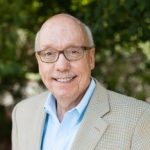Some Thoughts on Social Security, Medicare, and the Markets
I’ve been officially retired for just more than two years. During that time, I have been asked numerous times about when to take Social Security retirement benefits. My general response is that it pays to delay receipt of benefits to age 70. After that, there is no incentive to delay other than potential income taxes.
A recent study, “The Retirement Solution Hiding in Plain Sight” by United Income (June, 2019), indicates most people would say “yes” to making one simple retirement planning decision that could mean more income during retirement. But the same study shows that 96% of retirees take their first Social Security check at something other than the best time to do it. The potential lost income is estimated to average $111,000 per household. Now there are many good reasons for starting benefits at an earlier time. They include health issues that force starting Social Security benefits as early as age 62, or even careful planning that indicates total income is sufficient to fund retirement prior to age 70.
For someone whose full retirement age (66) benefit is $1,320, their age 62 benefit would be $1,000, and their age 70 benefit would be $1,640. That’s 64 percent per month more for someone who waits. There is a trade-off for those who do not work into their later 60s and delay benefits until age 70, as they will need to draw from their portfolios to meet their income needs. The other side of the coin is that people who work past their early and mid-60s will perhaps need less, if anything, from their portfolios.
Maybe the most interesting finding from the study was this: Elderly poverty could be cut by nearly 50 percent if all retirees claimed Social Security at the financially optimal time. And the drop in poverty would potentially fall even further if they earned additional income while they waited to claim Social Security. In full disclosure, I retired and started receiving Social Security benefits at age 67. Mine was a lifestyle decision, a choice other retirees may not have. I was able to retire before age 70 and not rely only on Social Security.
A close family member was recently diagnosed with lung cancer. While we do not yet know the extent or stage of the disease, we are nevertheless grateful that personal legal and medical documents were completed and signed a year ago. Health issues can appear seemingly from nowhere. Not only is it vital to have personal documents in order, but also to have the best Medicare Supplemental Insurance and Medicare Prescription Insurance. We recently received our annual report from our health insurance advisor, telling us that our existing Supplement Insurance is still the best option for us, but that we will save some dollars on our monthly premiums and prescriptions by making changes to Part D. For us, it is worth the advisor’s annual fee to have a knowledgeable person handle this for us. It gives us peace of mind, knowing we will have very good care as it is needed.
I was recently at a gathering of friends from my high school graduating class. As several of us discussed, it is amazing how quickly ten years’ time passes. We don’t know when we might see each other again, or even IF we will see each other again. We agreed that keeping physically active and doing some kind of rewarding volunteer work are important in living a rewarding a retirement.
MFO readers know that I don’t spend much time looking at my portfolio values. Some months I don’t even open the Schwab statements. This may shock people that someone who devoted more than 30 years to providing financial advice could step away from all of it so easily. There are four key truths in this decision.
- The world is always teetering on the brink. There have been reasons for concern and even frightening moments for as long as I can remember, but almost all of them were false alarms or had no lasting consequence. Some more mature readers may remember Louis Rukeyser’s response to a question about what the market was going to do. He said “The market will fluctuate. It will fluc up and fluc down.” How very true.
- I can’t change that. I fully admit that I have absolutely no control over what happens to the stock and bond markets. Worrying about things which I cannot control is wasted time.
- The financial press thrives by manufacturing crises. It is a fact that much of the broadcast financial media deliberately creates or hypes scary headlines in order to sell advertising. Do you ever see or hear them hype good news? Their strategy works.
- A sound long-term plan is the key to sleep. The best thing I have done is to create an allocation mix that allows me to sleep at night. I recently captured some profits at the urging of my former colleagues, now my advisors. We have a lot more sitting in cash than we ever
 had in the past, which helps offset some of the truly aggressive holdings we still hold.
had in the past, which helps offset some of the truly aggressive holdings we still hold.
Consider the current market’s record high just yesterday (29 October). If ever there was a time for extreme market volatility, it is now. But in fact, the market has remained rather resilient this year. Broadcast and print media are providing almost non-stop negative political news. Yet the economy remains robust, employment numbers remain strong, interest and mortgage rates remain historically low, and inflation is still lower than the Federal Reserve’s target level.
My advice to other retirees is to stay healthy, stay busy, and make it a point to spend some time doing things that bring joy and fulfillment to those whose lives are a struggle. Let’s be grateful for what we do have.












